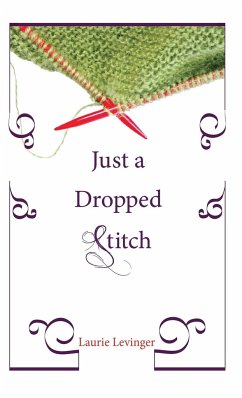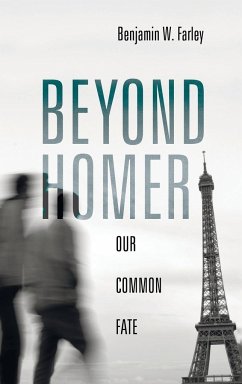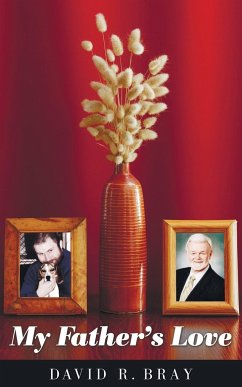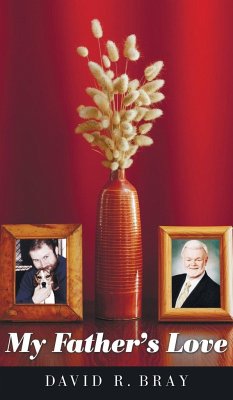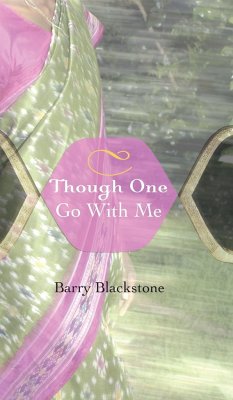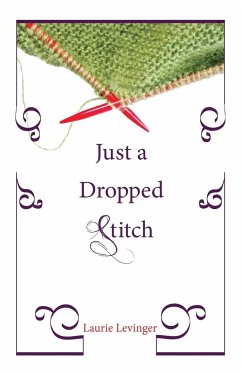
Just a Dropped Stitch
Versandkostenfrei!
Versandfertig in 1-2 Wochen
24,99 €
inkl. MwSt.

PAYBACK Punkte
12 °P sammeln!
Just a Dropped Stitch is a memoir told in interlocking short stories. It's a family photo album; each snapshot tells a mini-story. You're sure you understand what you're seeing, but it's not until you've finished ¿ipping through the entire album that you develop an intimate sense of who this family is. You thought you knew them, understood all the subtleties and dynamics, but, change the angle, soften the focus, ¿ip the page; there's a different story. Jesse, the narrator, is on a search. She's trying to identify the ""dropped stitches"" in her own life, to name them, and reknit them into a ...
Just a Dropped Stitch is a memoir told in interlocking short stories. It's a family photo album; each snapshot tells a mini-story. You're sure you understand what you're seeing, but it's not until you've finished ¿ipping through the entire album that you develop an intimate sense of who this family is. You thought you knew them, understood all the subtleties and dynamics, but, change the angle, soften the focus, ¿ip the page; there's a different story. Jesse, the narrator, is on a search. She's trying to identify the ""dropped stitches"" in her own life, to name them, and reknit them into a whole. As the book opens Jesse's mother is dying, but Jesse and her father find it impossible to face the inevitable. Turn the page: Jesse desperately wants to have children; she's a lesbian; she has to figure out how to make that happen. Later we meet her children, Noah and Sophie; we're introduced to Anna, who becomes Jesse's spouse, before the world has caught up with the concept. We meet grandparents, and learn that in Jesse's family writing is revered, but infused with unspoken taboos. And we meet her brothers who each has a particular place to stand in the family portrait. Jesse has a story to tell, and she isn't sure it's safe to tell it. Loss and grief, being silenced and silencing oneself, becoming frozen, and the heat-generating, melting power of love, these are the themes in Just a Dropped Stitch. The importance of naming, the redemption that comes from breaking silences, these are the interwoven threads. Meanwhile, keep ¿ipping through the album and you see snapshots of everyday life: hiking with Noah, shopping with Sophie for a bat mitzvah dress. And Jesse's mother, who refuses to completely disappear, makes a surprise appearance, embarrassing Jesse at a job interview. As we close the album, we're keeping vigil with Jesse in the hospital while she waits to hear whether she has the disease that killed her mother. And, then, there's a final snapshot: a handmade Chinese box, with sides that drop open, revealing a blood-red interior where there's nothing to hide. ""How do you tell a life story, with all the myriad stories, the secrets, the multiple selves that go into it? Laurie Levinger has written her way to an answer beautiful and true, fierce and tender, redemptive and heart-rending. In the process she's found a form and a voice that can carry the full range of a woman's--daughter's, mother's, sister's, lover's--experience. Listen."" --Ellen Lesser author of The Shoplifter's Apprentice, The Other Woman, and The Blue Streak ""Once I began reading, I could not stop. It is a beautifully written memoir, and more: a provocative revelation about love, family, the death of a generation impacted by holocaust, and the politics of fear and acceptance. It needs to be read!"" --Laura Simms storyteller and author of The Robe of Love ""Laurie Levinger takes us from one stage of adulthood with all it's suffering and joys to another so seamlessly that we are only gradually aware of the giant steps she has taken to claim her voice. There is a camaraderie of spirit in these stories that weaves the reader in. She bravely raises difficult issues, looks at them squarely, with intelligence and compassion."" --Charlotte Houde Quimby New Hampshire State Representative Laurie Levinger is a retired psychotherapist who lives and writes in Vermont. She is the author of What War? Testimonies of Maya Survivors.





